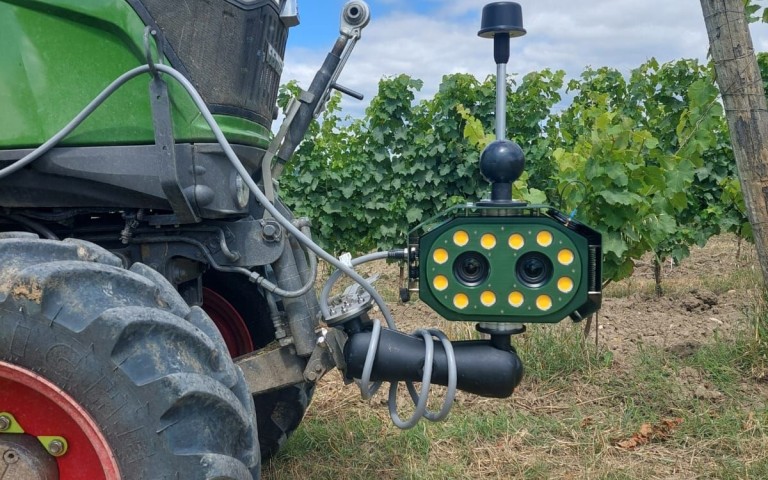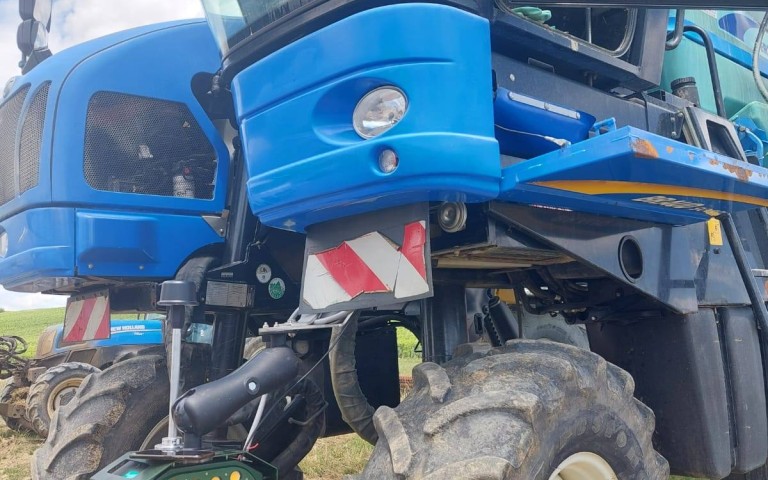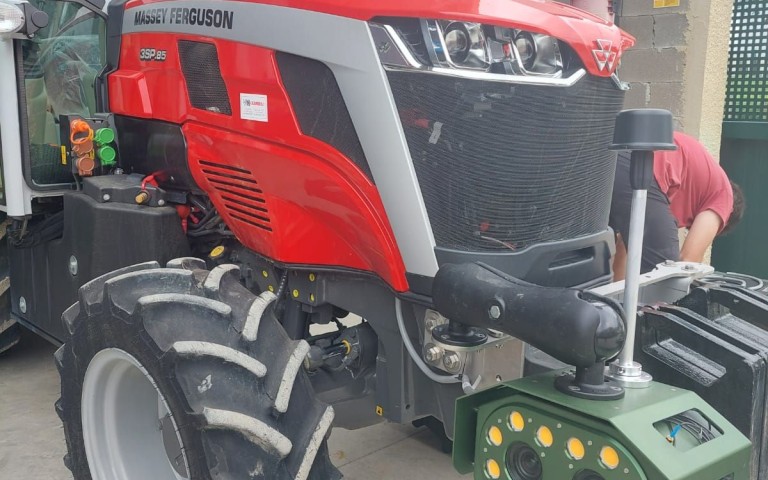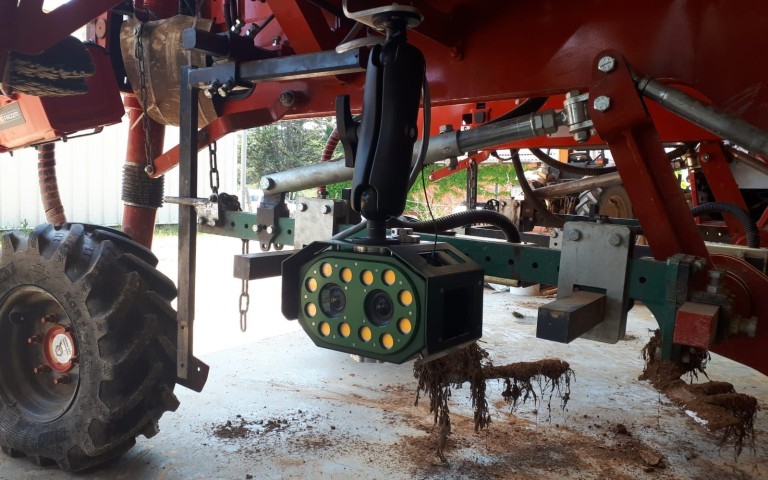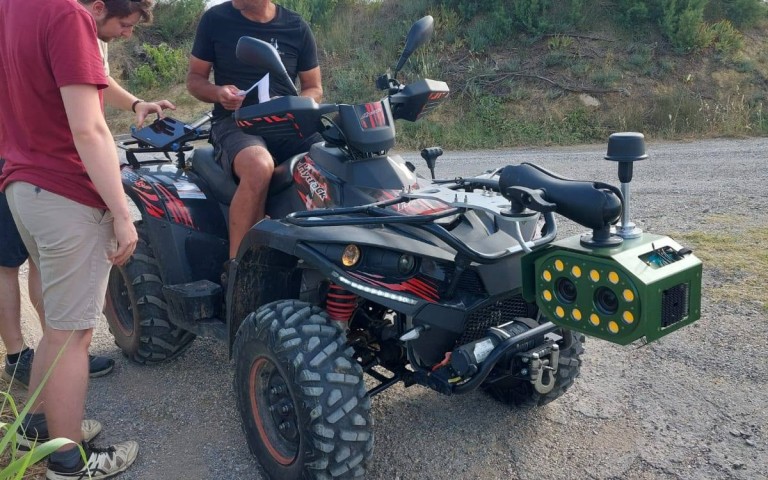Our vineyard analysis sensor was born of a collaboration between Vivelys and Bloomfield Robotics, an American start-up specialising in artificial intelligence. It enables relevant decisions to be made to ensure the quality and quantity of wines produced in the vineyard.
- Over 10 yearsof AI expertise for Bloomfield Robotics
- 3 countriesTesting in real-life conditions (USA, France, Italy)
- 2264Hectares surveyed
- + / - 10%Current error rate
A powerful sensor for a comprehensive assessment
With cameras fitted to all types of vineyard machinery, this sensor takes thousands of images from one row to the next. The algorithm then takes over and analyses the data before sending it to the producer via an interactive web platform in just a few hours.
This truly innovative sensor can be used for the early detection of failures, certain diseases, and, more generally, the health of the vines plot by plot. It can even be used to estimate yields.
Information displayed on a specially designed platform
- Inflorescences
- Grapes
- Berries (quantity and colouring)
- Leaves
- Branches
- Trunks
Decision-making
- Vine pruning
- Fertiliser management
- Disease treatment
- De-leafing
- Green harvesting
- Harvest logistics
What do you need to know?
FAQs
-
Vivelys and Bloomfield
In 2022, Vivelys invested in Bloomfield Robotics through its parent company Oeneo. Since then, the two companies have been working together to develop a new global vineyard analysis tool to address climate change issues. This new tool is a sensor with the primary role of determining the yield of a vineyard plot.
-
How does it work?
The images taken by the camera are processed by Deep Learning AI systems. This is a branch of AI capable of analysing unstructured data such as images, videos, or text.
It is a system based on several layers of interconnected artificial neural networks, like a human brain. These networks are made up of dozens or even hundreds of 'layers' of neurons, each receiving and interpreting information from the previous layer. The more layers there are, the deeper the learning process.
-
What type of camera is used?
The sensor features of a stereo camera and active lighting that film the entire plant to provide an accurate assessment of its key characteristics throughout the season.
Stereo camera: this is a type of camera with two or more lenses and a separate image sensor or film frame for each lens. As a result, the camera can simulate human binocular vision and capture 3D images.
-
What type of vehicle can it be fitted to?
With the right fittings, the sensor can be attached to any type of viticultural vehicle, tractor, straddle tractor, quad, etc.
-
At what speed can it be used?
It can be used day and night at speeds of up to 20 km/h. It surveys 10-15 ha/day (30 to 50% of the area covered). 30% is the minimum recommended for accurate estimates.
Documents to download
Our other products
- Native yeast selection
VIVELYS is by your side from the pre-selection of yeasts in the vineyard, right through to the pitching in the cellar and the conservation of the leaven from one year to the next.
- Dyostem
Monitor the ripeness of your grapes:
Dyostem® is an excellent tool for monitoring grape ripeness that facilitates your interpretation of the specific conditions of each vintage. - Ecolys
High-performance leaven production:
Ecolys® enables the production of high cell-concentration leaven thanks to easy-to-use equipment and full access to our expertise.
